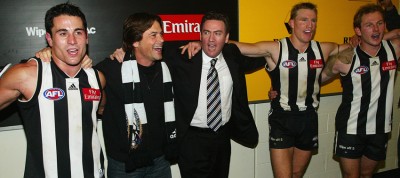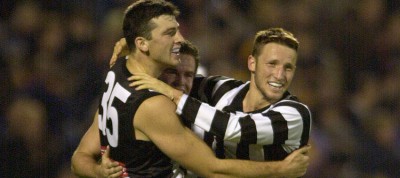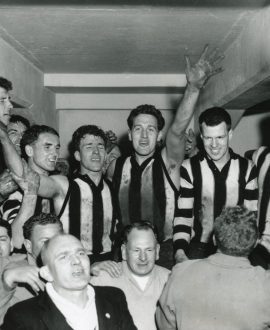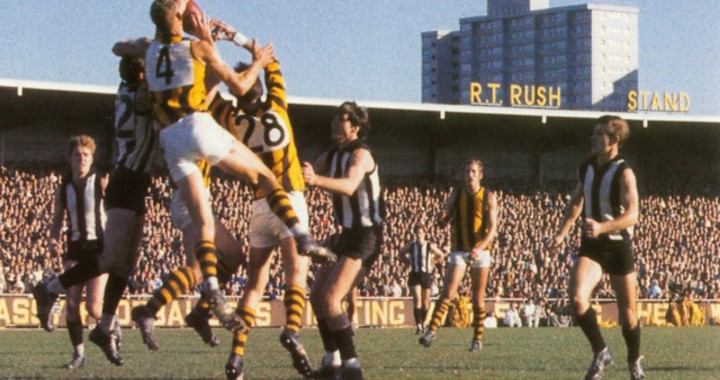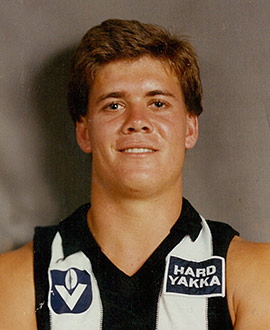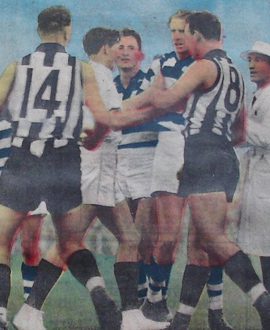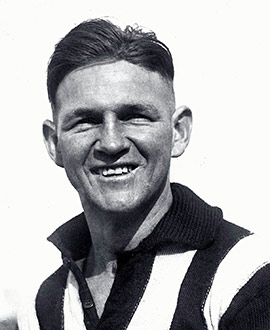GOOD OLD COLLINGWOOD FOREVER*
Good Old Collingwood forever, They know how to play the game.
Side by side they stick together, To uphold the Magpies name.
See, the barrackers are shouting, As all barrackers should.
For the Premiership's a cakewalk For the good old Collingwood.
* These are the lyrics of the official recorded version. Some variations exist.
Believe it or not, 'Good Old Collingwood Forever' has the oldest origins of any of our Australian football club songs. It started life as a marching song called 'Goodbye Dolly Gray' in the USA during the Spanish American War (1898), and grew in popularity through the Boer War (1899-1902). It was written by renowned American composer William D Cobb, who listed among his credits songs for an early stage version of Wizard of Oz.
The relevant lyrics adapted from 'Goodbye Dolly Gray' are as follows:
Goodbye Dolly I must leave you, though it breaks my heart to go, Something tells me I am needed at the front to fight the foe, See – the boys in blue are marching and I can no longer stay, Hark – I hear the bugle calling, goodbye Dolly Gray.
It wasn’t until 1906 that a Collingwood player by the name of Tom Nelson, who played a mere three games for the club, took the music and made it the basis for what was to become one of football's most stirring anthems (at least to the ears of devoted Collingwood fans). Remarkably, Nelson came up with his version with his teammates while in Tasmania - and that's a story in itself.
The penultimate line of the song ('Oh, the Premiership's a cakewalk') was changed in 1983, to avoid embarrassment after a long period without Premiership success. But the alternate version ('There is just one team we favour') met with little acceptance from fans and everyone soon reverted to the original. (For those who are curious, a 'cakewalk' was a dance that developed from a Black American contest in graceful walking, where a cake was offered as a prize.)
One mystery about the song is why the words 'Cor Blimey' were added, in the pause after the fourth line. Those words are not present in the official recording, but former skipper Harry Collier recalled during a 1996 documentary on 100 Years of Australian Football that players had been singing them since at least the 1920s. Today's players seem to have morphed it into something else again.
To this day, the Magpies remain the only club to acknowledge their barrackers in their club song. Maybe that explains why supporters love to sing it with such gusto after every single win.


